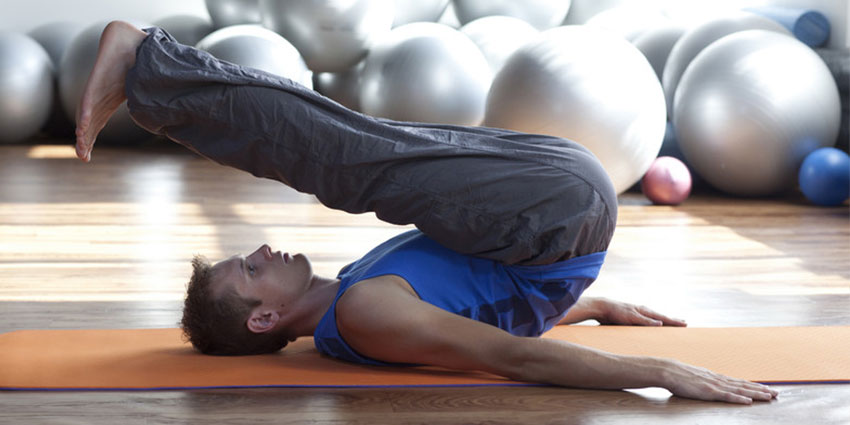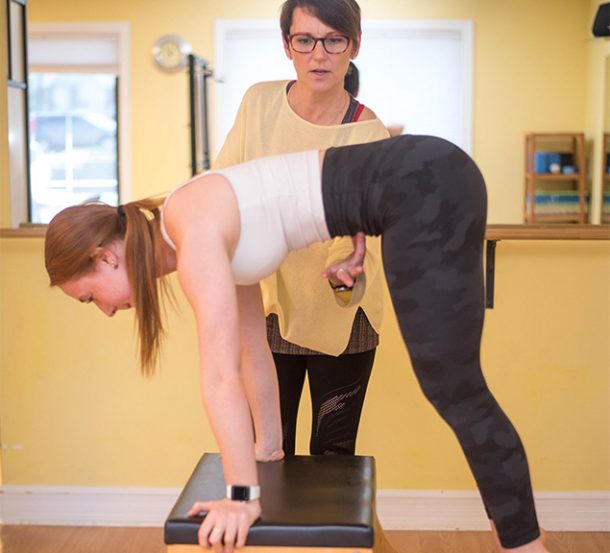Pilates for sport conditioning is a growing trend – but not a new one. Sport conditioning played a central role in the early evolution of Pilates. Today it is used by amateur and professional athletes alike for its physical and mental benefits.
The origins of Pilates for sport conditioning
Pilates was invented in the early 20th century by Joseph Pilates, who studied both western and eastern forms of exercise (and yoga in particular). Pilates was also a well-respected athlete, a notable boxer, and he even taught self-defense to the British police in 1912.
Using his own experience and studies Pilates invented what he called “Contrology”, today we just borrow his name, Pilates, to describe the techniques he designed. Pilates’ methods were an instant hit, especially with the dance community, who utilized Pilates for building flexibility and core strength. It expanded from the dancers and spread to athletes and fitness enthusiast around the world.
Today Pilates has become extremely popular in Canada, the United States, United Kingdom, Australia, and Western Europe. It is practiced by people of all ages, shapes and sizes, but the roots of Pilates remain firmly planted in sports conditioning.
Modern Pilates for sport conditioning
Pilates for sport conditioning is one of the most effective training regiments that athletes can participate in. The original six principles of Pilates, first outlined by followers of Joseph Pilates included:
- Concentration – focusing on movements
- Control – careful, deliberate movements
- Centering – focusing all movements through the core
- Flow – emphasizing economy of movement
- Precision – focusing on perfectly executed movements, rather than a large number of movements
- Breathing – learning how to control your breathing
Benefits of Pilates for sport conditioning
The benefits of Pilates for sport conditioning are twofold – physical and mental. Pilates emphasizes control, economy of movement, breathing, and concentration. Mastering – or at least exercising – these skills gives athletes a decisive edge regardless of their sport.
Pilates also reduces stress and puts athletes in the right mindset to perform at the top level and focus entirely on the movements they have to perform – rather than the pressure or expectations they may face. Athletes that play golf, baseball, and other sports which require calm nerves, and deliberate precise movements can benefit in particular from the mental focus that Pilates offers.
Physically, Pilates builds strength, flexibility, and endurance. Pilates strengthens your core and stabilizer muscles – the engine block and chasse of athletic activity.
Overall the benefits of Pilates for sports conditioning include:
- Building muscles and muscular endurance
- Increasing breathing and cardiovascular capacity
- Decreasing stress
- Increasing concentration and focus (key for sports like baseball, and golf)
- Preventing injuries by gaining greater bodily control, flexibility, and strength
- Gaining greater self-awareness
- Improving balance and coordination (particularly useful for sports like basketball, soccer, football and hockey).
Pilates for professional sport conditioning
Professional sports teams that use Pilates for sport conditioning include the:
- Minnesota Timberwolves
- New Jersey Nets
- Orlando Magic
- Washington Wizards
- Detroit Lions
- Greenbay Packers
- Tampa Bay Buccaneers
- Milwaukee Brewers
Brent Burns, Defenseman for the San Jose Sharks, told Pilates.com that “Pilates has become a big part of my conditioning…I use it every day and it’s really changed the way I move.” But you don’t have to be a professional athlete like Burns to take advantage of Pilates. It’s the perfect sport conditioning class for athletes of all ages, sizes and sports. Curious? Check out one of our Pilates classes and try it out for yourself.

